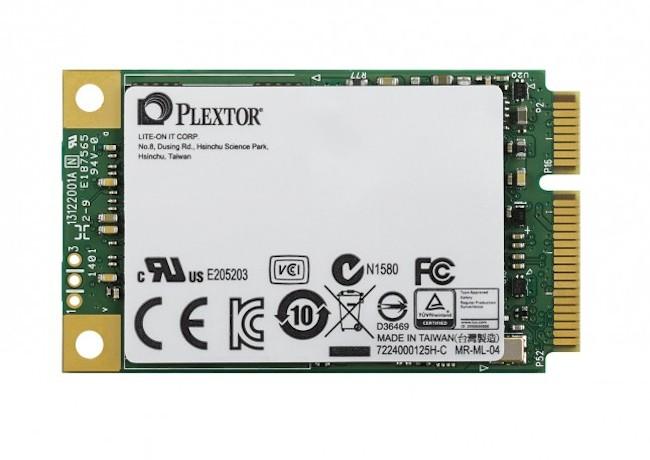
Plextor, a firm known for making solid state drives and other storage gear, announced a new line of mSATA SSDs dubbed M6M that aim to bring larger drives along with blazing data transfer rate speeds to slim computing gear.
The M6Ms will feature custom firmware, Toshiba Toggle flash memory and a Marvell 88SS9188 controller. Plextor claims that their M6M mSATA SSDs will be able to reach read and write speeds of 520MB and 440MB, respectively. The M6M drives will also employ 256-bit AES full disk encryption, as well as Plextor’s “True Protect” tech for advanced integrity checks.
“The M6M is all about real-world performance,” Plextor Product Manager Yaping Zheng said in a prepared statement. “We’ve optimized this compact SSD to deliver the best possible computing experience.”
Right now, Plextor’s mSATA storage offering consists of its M5M line, which comes three capacities; 64GB, 128GB, 256GB. With the new M6M line, the new drives would be twice as big (128GB, 256GB, and 512GB) when compared with the low, mid and high-end M5M units that are currently available. However, Plextor also indicates that the M5M series has slightly higher read speeds of 540MB/s, but write speeds that are also a touch slower; 430MB/s to be exact. Nevertheless, the higher capacities and slightly better write speeds make up for what you lose on the rated read speeds with the M6M line.
Though exact release dates are currently unavailable, the Plextor M6M line of mSATA SSDs will ship sometime in the second quarter of 2014. It’s currently unclear what the going rates for these drives will be, however.
What do you think? Sound off in the comments below.


